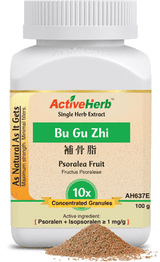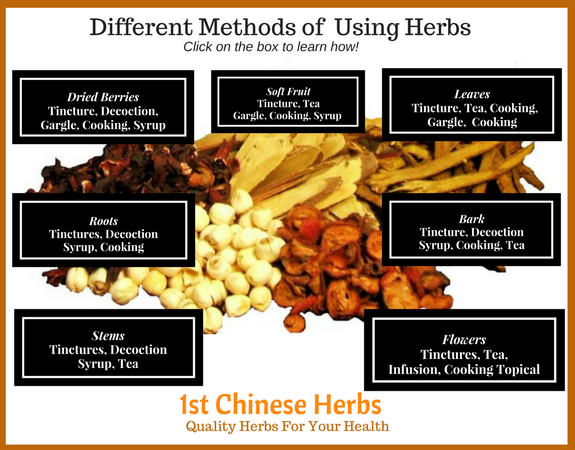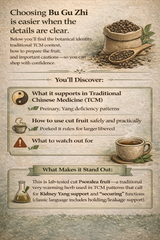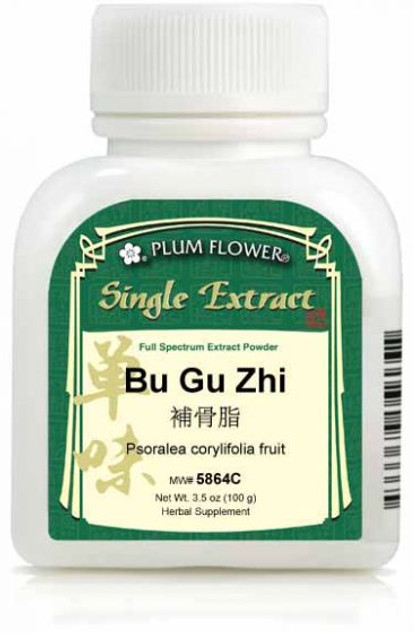Comprehensive Guide to Bu Gu Zhi (Psoralea Fruit) in Traditional Chinese Medicine
Introduction to Bu Gu Zhi (Psoralea Fruit)
Bu Gu Zhi (补骨脂), also known as Psoralea Fruit, is a revered herb in Traditional Chinese Medicine (TCM). It originates from the seeds of Psoralea corylifolia, a plant native to Asia. Esteemed for its beneficial effects on bone health and overall vitality, Bu Gu Zhi has been integral in TCM for centuries.
Historical And Traditional Uses Of Bu Gu Zhi
Bu Gu Zhi has a rich history documented in classical TCM texts such as the Shennong Bencao Jing and the Bencao Gangmu. Traditionally, it is renowned for its ability to:
- Strengthen Bones: Used to fortify bone health and support the healing of fractures and joint issues.
- Nourish Kidneys: Aids in improving kidney function and addressing conditions associated with kidney deficiency.
- Enhance Digestion: Helps to regulate digestive function and alleviate issues like diarrhea.
Health Benefits of Bu Gu Zhi
Bone Health and Joint Support
Bu Gu Zhi is highly regarded for its role in maintaining bone health and aiding in fracture recovery. Key benefits include:
- Bone Regeneration: Encourages the healing and regeneration of bone tissue, making it useful in treating fractures and osteoporosis.
- Joint Health: Assists in reducing joint pain and improving mobility by supporting bone and ligament strength.
Kidney Health and Vitality
In TCM, Bu Gu Zhi is used to support kidney function, which is crucial for overall health:
- Kidney Nourishment: Enhances kidney health, vital for maintaining strong bones and addressing symptoms like lower back pain and urinary incontinence.
- Vitality Boost: Contributes to overall vitality and energy levels by nourishing the kidneys, which are believed to store essential energy (Jing).
Digestive Health
Bu Gu Zhi also plays a role in improving digestive health:
- Digestive Support: Strengthens the digestive system and helps alleviate symptoms such as diarrhea and abdominal pain.
- Appetite Regulation: Promotes healthy appetite and improves overall gastrointestinal function.
Skin Health
The herb has applications in maintaining skin health:
- Moisturization: Helps to retain skin moisture and improve skin elasticity, combating dryness and premature aging.
- Skin Conditions: Used to treat various skin conditions, supporting overall dermal health.
Modern Research and Scientific Validation
Recent studies have confirmed many of the traditional uses of Bu Gu Zhi. Findings include:
- Bone Health: Research supports its effectiveness in promoting bone regeneration and treating osteoporosis.
- Anti-inflammatory Properties: Studies have demonstrated its role in reducing inflammation and alleviating joint pain.
- Kidney and Digestive Benefits: Scientific evidence aligns with traditional claims regarding kidney nourishment and digestive support.
How to Use Extract Granules
Extract granules are a convenient form of herbal medicine, offering the benefits of traditional herbs in a more accessible and easy-to-use format. Here’s a guide on how to effectively use them:
1. Read the Instructions
Before using any extract granules, always read the product’s specific instructions and recommended dosage provided by the manufacturer or your healthcare provider.
2. Measure the Dosage
- Determine the Correct Amount: Use a measuring spoon or scale to ensure you take the correct amount as directed. Dosages vary based on the herb and the condition being treated.
- Standard Dosage: Typically, the recommended dosage ranges from 1 to 5 grams per day, but this can vary. Follow the specific dosage instructions for your product.
3. Mixing with Liquid
- Water: Dissolve the granules in a small amount of warm or hot water. Stir well until fully dissolved. This is the most common method for consumption.
- Juice or Tea: You can also mix the granules into juice or herbal tea if preferred. Ensure the liquid is not too hot, as excessive heat may degrade the active ingredients.
4. Consumption
- Directly: In some cases, you can take the granules directly by placing them on your tongue and swallowing with a small amount of water. This method is less common but may be suitable for certain products.
- With Food: For those who find the taste unpleasant, mix the granules into a small amount of food, such as yogurt or applesauce, before consuming.
5. Timing
- Consistency: Take the granules at the same time each day to maintain consistent levels in your system. Follow the timing instructions provided, whether to take them with meals or on an empty stomach.
Herbal Information for Psoralea Fruit 10x Extract Granules
Product Specifications
Common Name: Psoralea Fruit
Botanical Name: Psoralea Cor'folia Fructus
Channels/Meridians: Kidney, Spleen
Pin Yin: Bu Gu Zhi
Other Ingredients: Maltodextrin
Package Size: 100 g.
Form: Concentrated Extract Powder, 10x
Origin: China
Brand: ActiveHerbs
Cautions: Do not use if pregnant or nursing. Use caution in cases of Yin Deficient heat with symptoms such as dry mouth, dry and sore throat, constipation, nocturnal emissions, and urinary tract infections.
Summary of Bu Gu Zhi Psoralea Fruit
- Tonifies the Kidneys
- Strengthens the Yang
- Warms the Spleen Yang
Product Properties: Acrid, Bitter, Very Warm

Check out our How to Use Bulk Herbs page to see how to use herbs correctly. Our web page is constantly expanding, as of today we have articles on:
- How to make salves, poultice, tinctures, teas, capsules, gargles, and foot bathes
- How to make a citrus facial splash
- Cayenne pepper: Caterpillar and aphid spray ( Natural insect repellent )
- Citrus potpourri basket
ACTIVEHERB SINGLE HERB EXTRACT ADVANTAGES
- 5x concentrated & potent
- All natural & purely herbal
- No pharmaceuticals, sugar, dyes, etc
- Comprehensive lab testing (e.g., heavy metals, etc.)
- Made in a cGMP certified facility
- Instant herbal tea
- No clumping
- Great value
Traditional Chinese Herbs
Chinese Traditional herbs should be regarded as an added feature to modern western healthcare, and not as a replacement. Chinese traditional herbs (Teas) emphasize harmony, and balance.
References:
https://pubmed.ncbi.nlm.nih.gov/31758650/
https://www.nature.com/articles/s41598-023-50454-0
https://go.gale.com/ps/i.do?id=GALE%7CA233711849&sid=sitemap&v=2.1&it=r&p=AONE&sw=w
https://www.sciencedirect.com/science/article/abs/pii/S1874390020301877
https://www.researchgate.net/publication/337468664_Clinicopathological_features_of_Bu_Gu_Zhi-induced_liver_injury_a_long-term_follow_up_cohort_study
https://us.dermatology-m.com/blogs/news/bu-gu-zhi-nature-s-retinol-alternative
https://onlinelibrary.wiley.com/doi/abs/10.1111/liv.14306





















